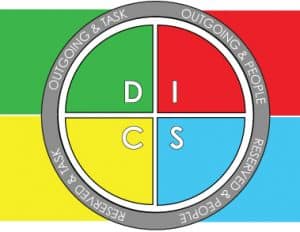Conflict: a serious disagreement or argument, typically a protracted one; be incompatible or at variance; clash.
We all know how important good team communication is. We all strive to work in a harmonious environment. But – that’s not reality. It’s not all sunshine and rainbows. Conflict can arise between employees, employees and managers, employees and customers. Sadly, it all adds up to a decrease in productivity; increase in stress; a potentially hostile environment and a loss in sales.
Can we prevent it? We have a really good chance.
Don’t get me wrong. Conflict between people is normal. Healthy even. We all desire to connect with someone – we strive to build genuine and trusting relationships. However, it has to start with good communication. Each of us has our own personality style and way of communicating. Often, we make assumptions of how the other person is thinking and/or how they will react to a given situation. Well, we know what happens when we make assumptions…..
Good news! There are predictable patterns in how people behave and make decisions. DISC Personality Profiles provide the insight to these patterns how people process information. Once you recognize these patterns, you can predict potential conflicts, and adapt strategies for resolving them. The goal? A better, more effective working relationship.
Conflict with a ‘D’ or Dominant Style
Well, they eat conflict for breakfast. They want you to be straight forward and will respect you more for it. NO EMOTIONS HERE! They’re impatient, and not likely to be sympathetic. The D Style is always focused on the task or challenge, so be prepared to come with a solution. They will implemenet as soon as possible.
Conflict with a ‘I’ or Inspiring Style
Piece of advice? PLEASE start any conversation about a problem with something positive. The one thing the ‘I’ Style can’t deal with is rejection. Start with a compliment about their performance or a skill, and you have their attention. They want you to listen and relate. (For you ‘D”s, this is a challenge) If the conflict is due to a missed deadline, be more specific in addressing their time management skills. They have a problem with staying focused and on-task. Keep in mind when developing a project timeline – they need more time.
Conflict with a ‘S’ or Supportive Style
Ah, the peacemakers. You may not have much conflict with the ‘S’ Styles. They strive for peace and harmony. They strive for a positive working environment. Often, when confronted with an issue, they will likely agree with you just to keep the status quo. This means nothing may ever change. It’s better to try and find a common ground and compromise on what needs to be done. That approach will give you results.
Conflict with a ‘C’ or Cautious Style
Shouldn’t be much conflict here – because they never think they’re wrong. ‘C’ types will have done the research and have all the answers. They are difficult to confront, and will try to withdraw from the situation. Start by acknowledging their efforts to date. They love to be problem solvers, so present the issue in a non-threatening way. The ‘C’ Style is methodical and incredibly organized, so they will work at a slower pace than D, I and S.
Next time you find yourself at odds with a co-worker (and there will be a next time), think about what makes them tick. Don’t try and change or “fix” them to meet your needs. Rather, accept their differences and adapt your style to better meet their needs. Awareness = Understanding = Success.
www.kmmdisc.com



Love this application of DISC!!! What an incredibly valuable tool ! Conflict is a tough one, but approaching it with these resources in mind really makes it manageable! Great stuff…I want to know more!!!